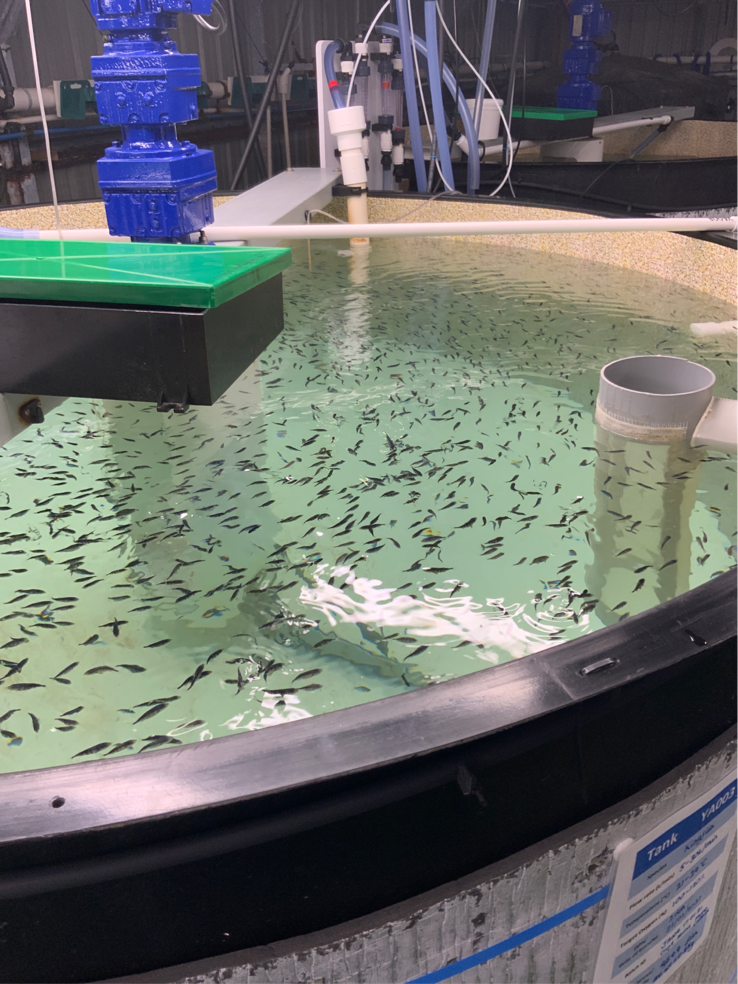Exploring the Future of Aquaculture

During her Nuffield scholarship travels around New Zealand, Shannon Harnett, a Partner at Rural Chartered Accountants, had the opportunity to visit the groundbreaking Kingfish farming facility in Ruakākā. This state-of-the-art, land-based aquaculture farm has captured attention not only for its cutting-edge technology but also for its potential to revolutionize the seafood industry in New Zealand.
The Ruakākā Kingfish Farm: A New Era in Aquaculture
Located at NIWA’s Northland Aquaculture Centre just south of Whangārei, this facility is designed to produce approximately 600 tonnes of high-quality kingfish each year. The process from egg to market-ready fish is remarkable: within just 12 months, a millimetre-sized kingfish egg is grown into a 3kg, high-value fish with white, premium flesh.
John Morgan, CEO of NIWA (the National Institute of Water and Atmospheric Research), explains that the farm plays a pivotal role in filling a gap in the seafood market. This land-based farm offers complete control over the fish-growing process, utilizing a cutting-edge recirculating aquaculture system (RAS) that optimizes environmental sustainability and production efficiency.
Shannon's Behind-the-Scenes Tour
Shannon’s visit to the NIWA facility gave her a comprehensive look into the commercial kingfish-growing operation and its broader implications for New Zealand’s aquaculture sector. Reflecting on her experience, Shannon noted the impressive security measures at the farm, designed to protect the high-value kingfish stocks housed there.
One striking detail that stood out was the high cost of growing kingfish in their early stages, mainly due to the expensive live microorganisms required as feed. Yet, NIWA’s innovative approach to sustainability ensures that water used in the tanks is continuously recycled and waste is treated on-site, minimizing the farm’s environmental impact.
The water itself is drawn from the Marsden Point pipeline, which stretches just 50 meters off the beach. This resource consent ensures the farm has ample water supply, more than enough for its current and future needs. NIWA’s commitment to sustainable practices is further exemplified by its cost-effective bio-digestors that manage waste, making the farm a model of eco-friendly production.
Aquaculture Innovation and Ethical Consideration
During the tour, Shannon and her group also explored several ongoing trials at the facility. These trials, which include the cultivation of seaweed and algae, offer exciting potential for expanding New Zealand’s aquaculture, and the breeding dynamics observed among the female population—driven by instincts of survival and reproduction.
Afterward, a lively debate erupted among the visitors about the ethics and practicality of farming fish in tanks, compared to more traditional net methods. The conversation, reminiscent of similar debates in livestock farming, brought into focus the evolving landscape of fish farming and the balance between innovation, sustainability, and animal welfare.
Aquaculture's Broader Potential in NZ
Shannon’s visit to Ruakākā also led her to reflect on the potential for expanding aquaculture across New Zealand. The commercial viability of farming species like trout could hinge on changes to the Resource Management Act (RMA), which might open up new opportunities for the sector. There’s also significant potential for aquaculture growth in regions such as the Eastern Bay of Plenty, where environmental conditions and industry infrastructure could support similar land-based or sea-based facilities.
With NIWA’s Kingfish farm setting a new standard for sustainable fish farming in New Zealand, it’s clear that the future of the country’s aquaculture industry is bright. As global demand for seafood continues to grow, innovative facilities like this one in Ruakākā will play a key role in meeting that demand while maintaining New Zealand’s commitment to environmental stewardship.
A Promising Horizon for Aquaculture
Shannon Harnett’s visit to NIWA’s Kingfish facility in Ruakākā underscores the vast potential of aquaculture in New Zealand. The farm’s focus on sustainability, cutting-edge technology, and commercial viability presents a blueprint for future growth within the sector. As conversations around ethics, sustainability, and economic potential continue, it’s clear that the Kingfish farm is not just a local success story—it’s a glimpse into the future of seafood production on a global scale.